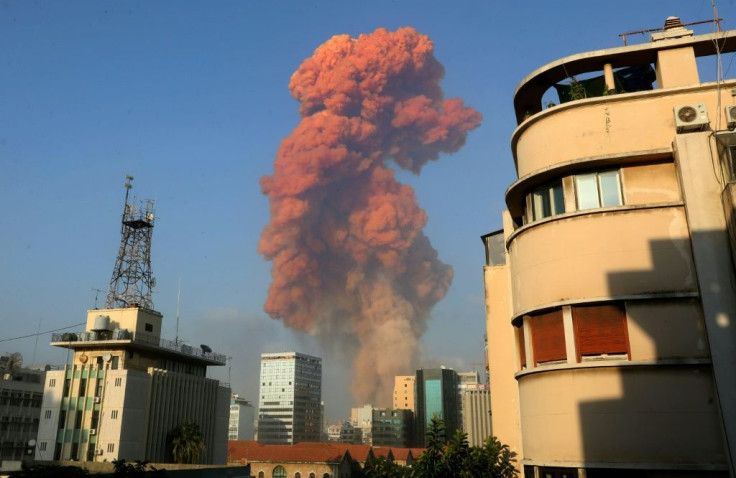Beirut Explosions: Were The Blasts An 'Accident' Or An 'Attack'?
Lebanese officials sought to determine Wednesday whether deadly explosions in Beirut were an accident or an attack, as suggested by U.S. President Donald Trump, as crews sifted through rubble. The blasts killed more than 100 and injured at least 4,000, the Red Cross said.
Trump stirred some controversy Tuesday at his press briefing when he said the incident "looks like a terrible attack."
When a reporter asked him to clarify the comment, Trump said: "I've met with some of our great generals and they just seemed to feel that it was. This was not some kind of a manufacturing explosion type of event. ... They would know better than I would, but they seem to think it was an attack — it was a bomb of some kind, yes."
That’s a contradiction what Lebanese officials and other experts said.
The Associated Press reported the blasts originated from a warehouse at the port of Beirut where ammonium nitrates and fireworks were stored.
Jeffrey Lewis, a missile expert at the Middlebury Institute of International Studies in Monterey, California, told the AP the explosions look “like an accident,” likely ignited by the fireworks.
“First, there was a fire preceding the explosion, which is not an attack. And some of the videos show munitions what I could call popcorning, exploding like ’pop, pop, pop, pop,’” Lewis said.
“If you have a fire raging next to something explosive, and you don’t put it out, it blows up,” he said.
Orange clouds also followed the blast, the AP reported, likely from toxic nitrogen dioxide gas that’s released after an explosion involving nitrates.
Lebanese officials also said they believed the explosion was an accident, AFP reported, which noted the blast involved ammonium nitrate that had been seized by the government and was being stored at the warehouse.
"I will not relax until we find the responsible party for what happened, hold it accountable and apply the most serious punishments against it because it isn't acceptable that a shipment of ammonium nitrate — estimated to be 2,750 tons — was in a depot for the past six years without precautionary measures being taken," Prime Minister Hassan Diab in a statement issued by the Lebanese Higher Defense Council.
Whatever the cause, the explosions left behind an enormous amount of sadness.
The Washington Post described the scene Wednesday morning.
“As the sun rose, the damage was devastating. The scene at the port was almost apocalyptic, with smoke hanging above a crater gouged from the land running down to the sea, and only one side of the warehouse still standing. A silo that provided most of Lebanon's wheat supply was ripped open.
Red Cross workers were still scouring the wrecked and deserted streets in neighborhoods adjoining the port … calling out for residents who might be trapped and injured.
"Families put out frantic calls for missing loved ones across social media. There are bodies in the rubble and in the waters of the port.
"In residential neighborhoods near the port, so much was shattered. The historical arched facades were now piles of rubble and rebar. Dazed residents walked the streets … taking in the extent of the area's losses.”

© Copyright IBTimes 2024. All rights reserved.











